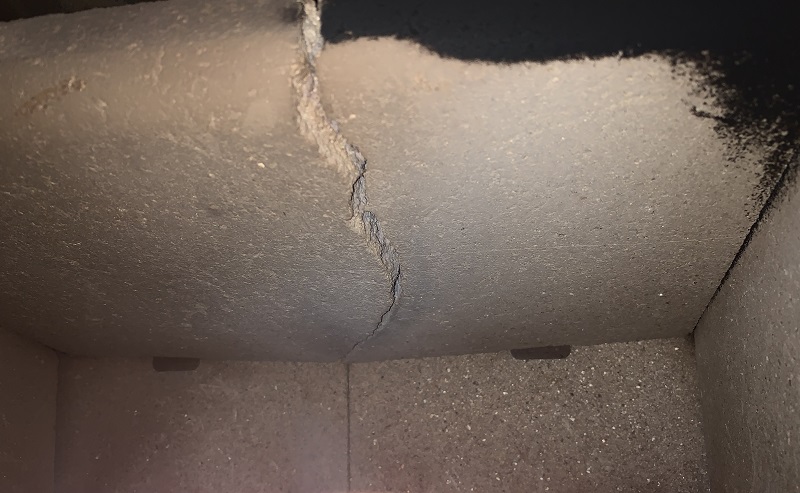We use cookies to make your experience better. To comply with the new e-Privacy directive, we need to ask for your consent to set the cookies. Learn more.
Do I need to replace my fire bricks?
Fire bricks also referred to as stove liners are insulation for a woodburning stove and protects the stove body from high temperature damage. As the fire bricks with-stand some of the hottest temperature in the stove they do require replacing after a period of time. This is why they are classed as a consumable part on a stove and are rarely covered under warranty. How quickly a fire brick needs replacing will depend on how often you use your fire. (like tyres on a car)
If the fire bricks are still in postition and are able to support the throat plate correctly there is no need to replace them immediatley. Cracked Fire bricks do not affect the performance of the stove. Hair line cracks are normal and can appear when you use your fire. However, once a firebrick begins to crumble or break away, its insulation properties are reduced and this may cause irreversable damage to the stove body, so at this point they will need replacing.

example of hairline crack -does not need replacing immediatley

Example of brick that does need replacing
Cracked liner bricks on a wood burning stove can be caused by various factors, including:
Over-firing: When a stove is over-fired, the temperature inside the stove rises to a level that the liner bricks cannot handle, causing them to crack.
Thermal stress: Rapid changes in temperature, such as when starting a fire or adding too much fuel too quickly, can cause the liner bricks to expand and contract rapidly, leading to cracks.
Poor installation: If the liner bricks are not installed correctly, they may be uneven or not properly supported, leading to cracking over time.
Age and wear: Over time, the liner bricks may become worn and brittle, making them more prone to cracking.
Impact damage: Accidental impact, such as dropping a heavy object on the stove or hitting it with a sharp tool, can cause the liner bricks to crack.
Moisture: Moisture can cause the liner bricks to deteriorate over time, leading to cracking. - Always burn well seasoned logs or kiln dried logs. Moisture can also effect the stove during the Summer months it is recommended to open and close the stove door to allow the chimney to breath.
It is important to have any cracks in the liner bricks of a wood burning stove repaired promptly to prevent further damage and ensure safe operation of the stove.